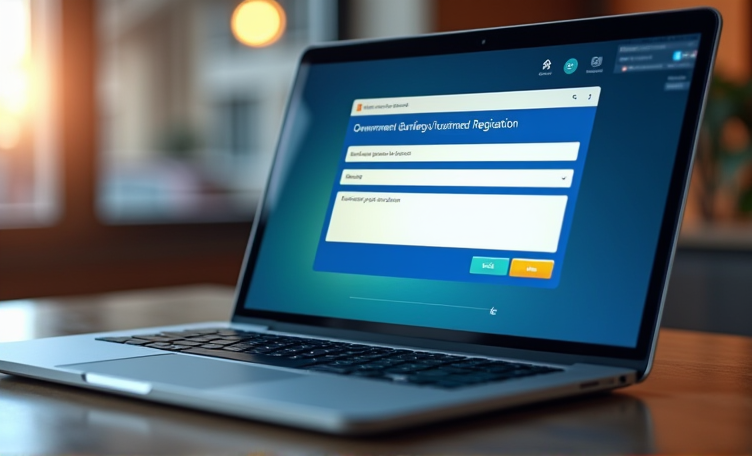🧾 Starting a Small Business in Europe: A Guide for 2024
Do you dream of starting your own business in Europe, but don’t know where to start? Registering and managing a small business can seem like a daunting task, but with the right approach, it is entirely doable. This step-by-step guide will show you how to start and legalize a small business in Europe in 2024. We will cover the key stages of the process, from choosing a business structure to tax obligations, to help you get started on your entrepreneurial journey.
🔎 What needs to be done before registering a business?
To legally start a business in Europe, you need to register with the relevant authorities in your country. The process may differ slightly depending on the country, but the basic steps are similar. The first step is to choose the business structure and tax system that will be most suitable for your enterprise. Consider your goals, capital size, number of employees and other key parameters.
📋 Choosing a business direction
Before registering your business, you need to decide what area you want to work in. In Europe, there is a classification system for types of activity similar to the OKVED system. Each European country has its own classifiers, with the help of which you can select a business category and the corresponding code that will be indicated during registration. For example, in France, Italy or Germany, each activity has a unique code that must be indicated in the application. Choosing the right direction and code is important, as it affects your obligations and licenses. Some types of business require special permits or certifications.
🧮 Definition of the tax system
One of the most important steps is choosing a tax system. In Europe, each country offers several tax regimes suitable for small businesses. Let's look at the most common options:
- Simplified tax system (for small businesses): This system is typical for most EU countries. It allows entrepreneurs to pay tax on a fixed income or with a minimum accounting of expenses. For example, in France and Spain, small businesses can choose a simplified tax system, where the rate varies from 7% to 20% depending on turnover.
- General Tax System: This regime is used for large businesses and requires payment of taxes on profits, value added tax (VAT), and social responsibility for hiring employees. The general tax regime includes many mandatory reports and declarations that can be complex for small businesses.
- Patent and special tax regimes: Some countries, such as Germany and Italy, have patents and preferential tax rates for certain activities (e.g. crafts, farming or work in the service sector).
The tax system should be chosen taking into account the size of your business, turnover and planned expenses. It is important to consult with an accountant or lawyer in advance to choose the most suitable regime.
🖋️ How to write a business registration application
The application for registration can be submitted through the local tax authorities or through the government services portal, depending on the country. In Europe, the business registration process can be completed online through specialized government platforms. The application for registration usually includes the following data:
- Full details of the business owner (full name, date and place of birth, citizenship).
- Business registration address (physical or legal).
- Choice of tax regime.
- Codes of selected activities.
- Contact information and signature.
Some countries may also require additional documentation to prove qualifications or licensing if your business requires special permission.
📲 Methods of registering a small business in Europe
There are several ways to register a business in Europe. Depending on the country, an entrepreneur can choose between traditional registration through government authorities or using electronic portals to submit documents.
📄 Registration through government agencies
One of the standard ways to register is to submit documents to the local government office responsible for commercial activities. For example, in Spain this is the Registro Mercantil, in France – the Greffe du Tribunal de Commerce, and in Germany – the Handelsregister. When visiting these offices, you must submit an application and pay a registration fee. It usually takes from a few days to a few weeks to process the documents, depending on the country.
🌐 Online registration
In 2024, entrepreneurs can register a small business online in most European countries. For example, countries such as France, Germany and the Netherlands provide special platforms for electronic filing of documents. The registration process via an online portal is simple: you upload scanned documents and pay a fee. You receive a registration certificate and a tax number in electronic form. This is the fastest and most convenient method, which is actively used in Europe.
💼 Legal services
For those who do not want to waste time filling out all the forms themselves, there are services of law firms that deal with business registration from start to finish. These companies will prepare all the documents and send them to the relevant authorities. However, the cost of such services is higher than for self-registration.
📌 Further actions after business registration
Registering your business is just the first step. Once your business is registered, there are a few additional steps you will need to take:
- Receiving registration documents: Once registered, you will receive documents confirming your status as a business owner.
- Registration with social and pension funds: In most European countries, small businesses must register with the relevant social and pension systems.
- Opening a bank account: You will need to open a bank account to run your business.
- Obtaining licenses and permits: Depending on the type of activity, you may need additional licenses.
📊 Table of popular tax systems in Europe
Here is an overview of the tax systems available to small businesses in different European countries:
| Country | Simplified system | Normal system | Patents and privileges | Tax rate |
|---|---|---|---|---|
| France | Up to €176,200 turnover | Standard | Yes (for crafts) | 7-20% |
| Germany | Up to €600,000 turnover | Standard | Patent (Kleinunternehmer) | 7-19% |
| Spain | Up to € 60,000 income | Standard | Fixed tax | 15-25% |
| Italy | Up to €65,000 turnover | Standard | Special rates for farmers | 5-22% |
⁉️🤔 Popular questions and answers
- What documents are needed to register a business in Europe?
In most cases, you will need a passport, registration address, an application indicating activity codes and a choice of tax regime.
- How long does the business registration process take?
This usually takes from a few days to two weeks, depending on the country and the method of submission.
- Is it possible to change activity codes after registration?
Yes, in any European country it is possible to make changes to the activity codes by submitting a corresponding application.
- How much is the government fee for business registration?
Depending on the country, the duty varies from $100 to $800.
- Do I need to open a bank account for my small business?
Yes, opening a current account is mandatory, as all commercial transactions must go through banking channels.
- Is it possible to register a business online?
Yes, many European countries offer online registration through government portals.
- What tax systems are available for small businesses?
Most European countries offer simplified tax systems, regular tax regimes, as well as special patents and preferential systems for small businesses.
💎 Results and conclusions
Starting a small business in Europe in 2024 is a simple and accessible process thanks to online services and simplified registration procedures. No matter which country you are in, the main thing is to choose the right business structure and tax system that will suit your plans. By registering your business, entrepreneurs get the opportunity to work legally and enjoy tax benefits. Following these recommendations, you can easily go through the registration process and successfully start your business in any country in Europe.
